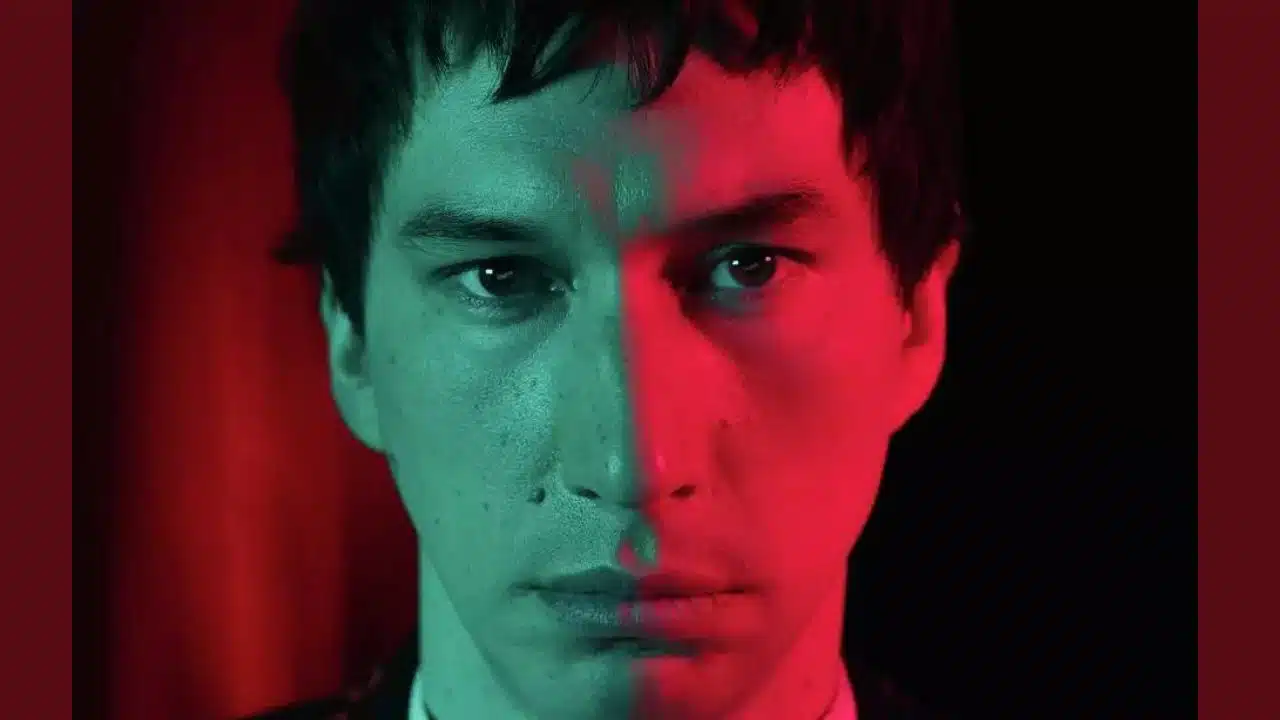While 2024 may not have had a “Barbenheimer”-style blockbuster moment, Megalopolis—directed by the legendary Francis Ford Coppola—has generated one of the biggest film discussions of the year. Coppola’s ambitious and controversial film has polarized critics and audiences alike, marking it as one of the most talked-about movie releases of 2024.
Coppola’s Decades-Long Vision Finally Realized
Francis Ford Coppola, who is widely regarded as one of the greatest filmmakers of all time with classics like The Godfather and Apocalypse Now under his belt, has dreamed of making Megalopolis for decades. The film, set in a futuristic version of New York City reimagined as “New Rome,” explores themes of power, society, and civilization in a world where the Roman Empire never fell.
Coppola first envisioned the movie decades ago, but despite his impressive track record, he struggled to secure financial backing from major studios. The director’s passion for the project, however, was unwavering. After failing to get support from Hollywood, Coppola made the bold decision to self-finance the film. He raised a staggering $120 million, largely by selling his Napa Valley winery, to finally bring Megalopolis to life. For Coppola, this film represented the culmination of his life’s work—a grand, philosophical exploration of human nature wrapped in an epic cinematic experience.
But from the very start, Megalopolis was plagued with controversies and setbacks that nearly derailed the production entirely. Reports surfaced early on about disorganization on set, with several crew members describing chaotic and unpredictable working conditions. Some alleged that Coppola exhibited erratic behavior, with claims of excessive cannabis use while on set, leading to a lack of clear direction during key scenes. The atmosphere was reportedly tense, with allegations of sexual harassment and mistreatment of crew members adding further turmoil to the production.
Even the marketing campaign seemed doomed. When the first trailer was released, it was quickly pulled down after it was discovered that it featured inaccurate and misleading quotes from critics, further adding to the film’s already shaky reputation.
Critical Reception: Ambition vs. Execution
When Megalopolis finally made its way to theaters, critics were divided. While some admired Coppola’s vision, describing it as a work of profound ambition and creativity, others found it to be deeply flawed, with many critics labeling it as an incoherent mess. The polarized responses left many wondering whether Coppola’s masterpiece was ahead of its time or a misguided vanity project.
SFGATE columnist Drew Magary was among the harshest critics, penning a review that served as a stark warning for potential moviegoers. Magary didn’t hold back, calling the film “unwatchable” and advising audiences to steer clear, no matter how curious they might be about Coppola’s latest endeavor.
“This movie is unwatchable,” Magary wrote in his scathing review. “It deserves to live in infamy, with its title acting as shorthand for any multimillion-dollar flop borne out of monstrous ego. I took a bullet watching Megalopolis for you. An actual bullet would have been kinder.”
Magary’s review encapsulated a broader sentiment among critics who, while acknowledging Coppola’s boldness in attempting something so unique, couldn’t overlook the film’s disjointed storytelling, bizarre character arcs, and often chaotic direction. Some went as far as comparing Megalopolis to infamous cinematic disasters like Heaven’s Gate and Waterworld—films that were plagued by high budgets, endless delays, and disastrous box office performances.
Despite this, there were critics who did appreciate Megalopolis for its artistic merit. They praised Coppola for taking risks at a time when Hollywood often plays it safe. While they admitted the film was far from perfect, these critics highlighted its visual splendor, intricate set designs, and its deeper philosophical themes, which they felt made it a unique cinematic experience worth contemplating.
San Francisco Audience Reaction: Confusion, Curiosity, and Enthusiasm
In San Francisco, however, the film seemed to resonate more positively with audiences, even if their feelings were mixed. After a Friday matinee IMAX screening at AMC Metreon, several filmgoers shared their thoughts with SFGATE. While the overall consensus was that Megalopolis was far from a perfect film, many viewers felt compelled to revisit it, suggesting that a second viewing might reveal hidden layers of meaning that weren’t immediately apparent.
Neil Saxana, a history enthusiast with a deep knowledge of classical civilizations, appreciated Coppola’s historical references throughout the film. “I think it’s one you’ve got to watch a second time to really appreciate it, or understand some of the nuances of it,” Saxana said. He explained that the film’s setting in “New Rome”—a futuristic interpretation of New York City in a world where the Roman Empire never fell—offered fascinating insights into how ancient history could intersect with modernity.
“I think there’s probably a lot of hidden meaning I didn’t catch the first time around,” Saxana said. “It’s a movie that asks you to pay attention, and I think I might have missed some important details in the middle of all the visual spectacle.”
Divisive Yet Mesmerizing
Ryan Coughlin, who was visiting from Richmond, Virginia, admitted that Megalopolis wasn’t an easy watch. In fact, he confessed that he fell asleep during parts of the screening but was still captivated enough to want to give the film another chance. “I definitely nodded off a couple of times,” Coughlin said with a laugh, “but I’d absolutely watch it again. It’s absurd, sometimes incoherent, but also fantastical. It’s just a trip.” He went on to praise the star-studded cast, with particular appreciation for Aubrey Plaza’s performance, which he described as a standout in an otherwise convoluted narrative.
Another viewer, Luke, who asked to be identified only by his first name, was equally baffled by the film’s sheer scope and ambition. “It’s honestly impossible to describe,” he said. “It’s like nothing I’ve ever seen before.” Luke attended the screening with his friend Adam Rolseth, who had already seen Megalopolis earlier in the week at a screening in Hollywood. Despite its flaws, Rolseth felt compelled to see the film a second time.
“It’s definitely very stupid, but in an endearing way, I think,” Rolseth said. “Coppola is taking so many swings here, and sure, a lot of them miss, but you have to admire his willingness to take those risks. There’s something kind of admirable about watching someone put it all on the line like this.”
Is Megalopolis Worth Watching?
As the discussion around Megalopolis continues to unfold, it’s clear that the film has struck a chord with audiences, even if it’s not in the way Coppola might have originally envisioned. Some are calling it a cinematic disaster, while others are labeling it a misunderstood masterpiece. Either way, Megalopolis has become a cultural event in its own right, prompting discussions about the role of art in film, the limits of ambition, and the willingness of filmmakers to take risks.
When asked if they would recommend the film to friends, most audience members were hesitant to give a clear answer. Luke summed up the general sentiment best: “It’s unlike anything I’ve ever seen. So I think it’s worth seeing for that alone.”
In the end, Megalopolis may not be the universally praised hit that Francis Ford Coppola hoped it would be, but it’s certainly made a lasting impact. Whether you love it or hate it, the film offers a cinematic experience that challenges expectations and leaves viewers with plenty to think about long after the credits roll.
As Coppola himself said in interviews leading up to the film’s release: “It’s not about making something everyone will love; it’s about making something that matters.” With Megalopolis, Coppola has undoubtedly achieved that goal—whether for better or worse.
A Film That Divides, But Leaves a Mark
Megalopolis may be one of the most polarizing films in recent history, but its place in the conversation around ambitious filmmaking is secure. Coppola’s decision to self-fund, his determination to push boundaries, and his controversial approach to storytelling have all contributed to making this film an unforgettable chapter in his illustrious career.
For some, Megalopolis will go down in history as a cinematic misfire, a cautionary tale of unchecked ambition. For others, it’s a misunderstood masterpiece that requires careful thought and multiple viewings to fully appreciate its depth. Either way, it’s clear that Megalopolis has made an indelible mark on the landscape of modern cinema.







































